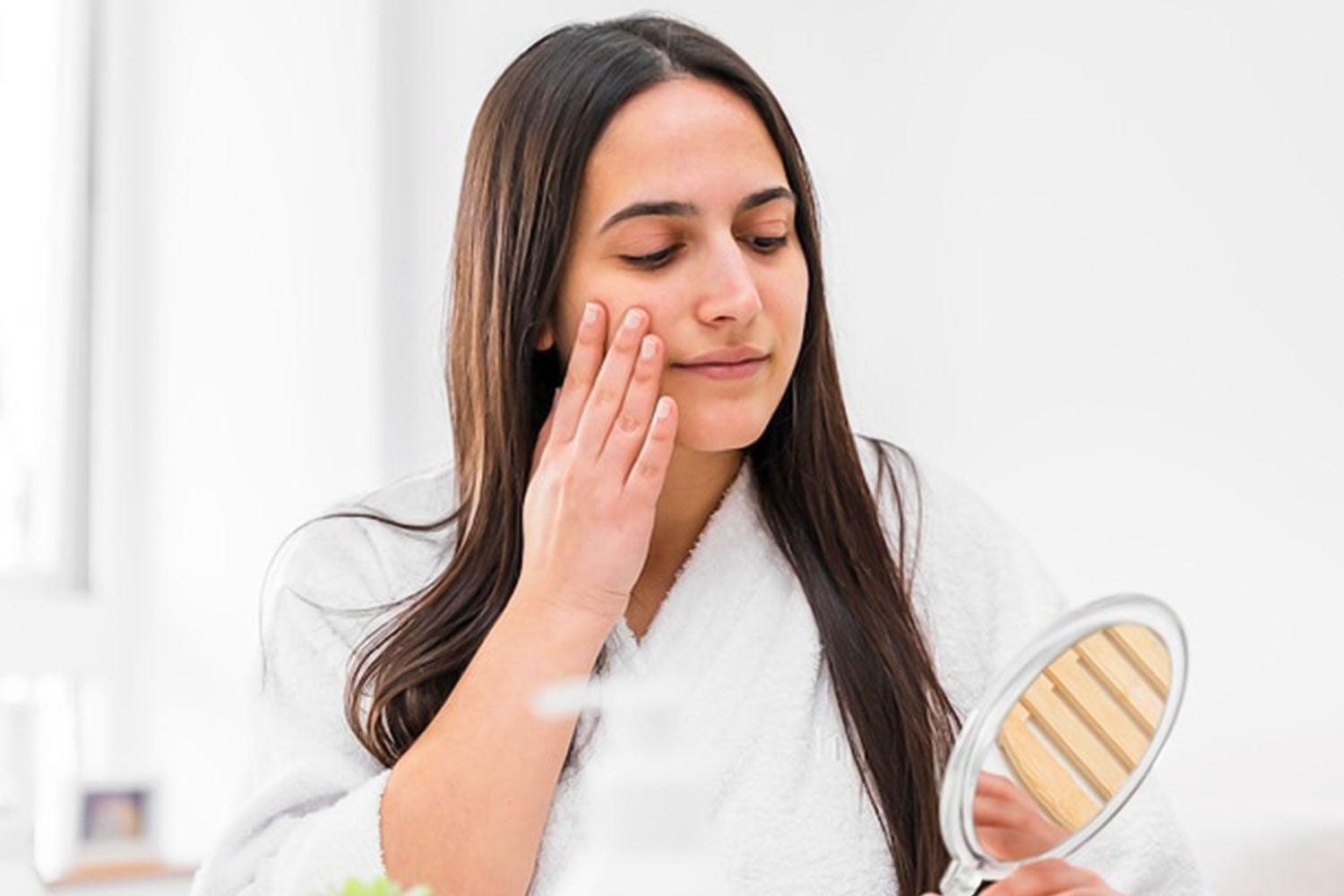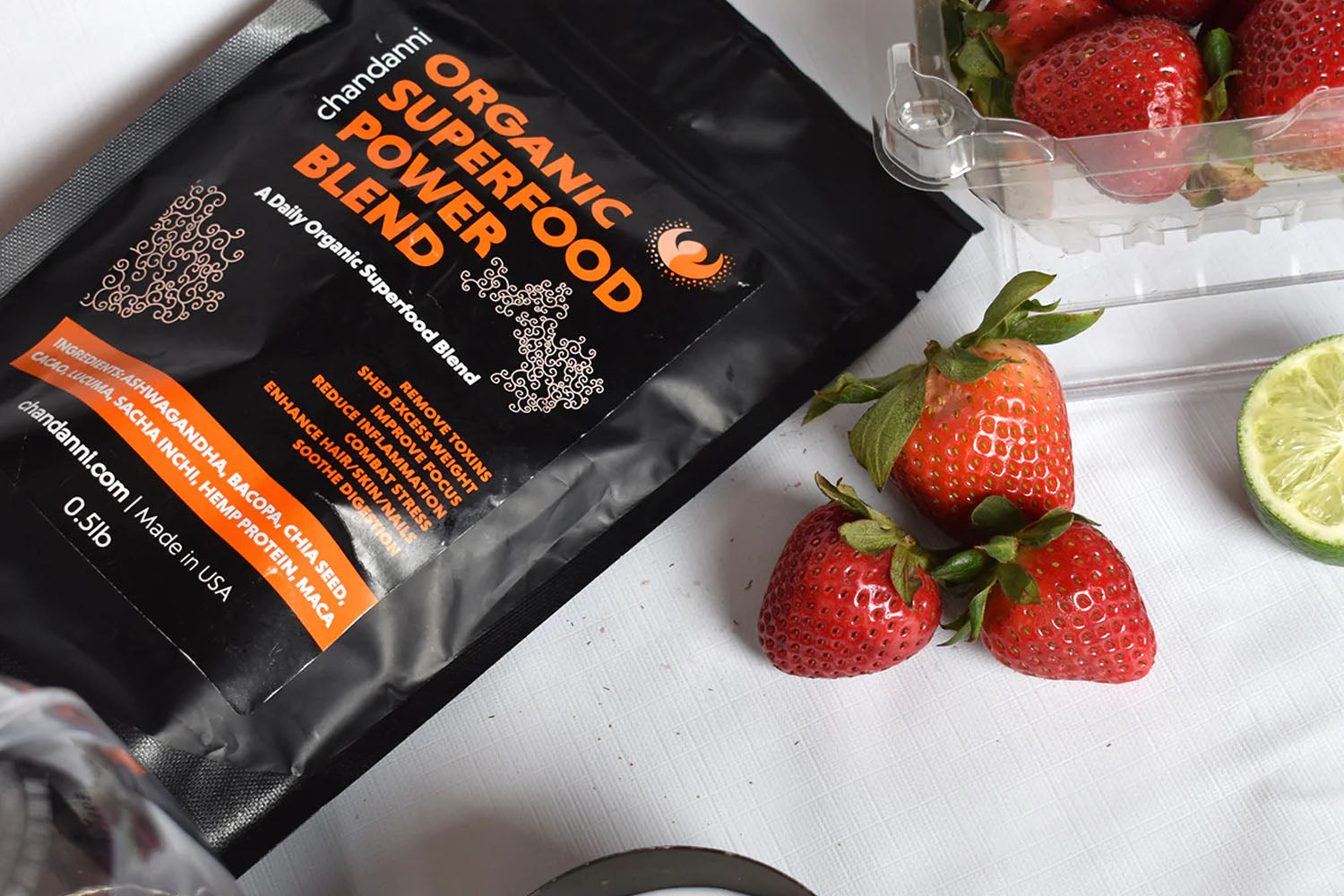
Why Skipping Your Face Moisturizer is a Big Deal
Sania TariqHave you ever felt parched and off when you forgot to drink water? Your skin feels the same without moisturizing. Sure, the skin has its natural moisturizing process, but here's the catch: When you wash your face and feel fresh, you also wash away the nourishment your skin craves. Many think, "My skin's got this," but it truly struggles without that dab of face moisturizer.
This blog uncovers the ripple effects of missing that essential moisturizing step. And honestly, it's more than just a bit of dryness.
What Does Moisturizer Do to Your Face?
Face Moisturizers play two leading roles. First, humectants, like glycerin, attract water. They pull it from the deeper layers of your skin and even grab some from the air around you. Their job is to keep the outer layer of your skin, known as the epidermis, well-hydrated.
On the other side, we have occlusives and emollients. Think of them as the smoothening agents. They create a barrier to seal in the moisture [6], ensuring your face remains soft. You'll find these in many forms, from natural oils like jojoba oil to other compounds like silicone oils. The good news? Most moisturizers bring together the goodness of both humectants and emollients.

Cleanlin
ess vs. Protection
Washing our faces feels refreshing. But in that process, we unintentionally strip away the protective sebum layer. This leaves our skin more open to irritants like pollutants and even makes it age faster. Gentle face washing followed by moisturizing helps. The moisturizer fills the gaps and ensures our skin remains hydrated and shielded.
However, a word of caution: if you're moisturizing but not cleaning your face regularly, you're inviting trouble. This mix of added moisture and accumulated dirt and oil can lead to clogged pores and breakouts.
Read on to discover the effects of skipping your face moisturizer.
Skipping Face Moisturizer? Here's What It Does to Your Skin
Inside our skin, there are little places called sebaceous glands. They produce sebum, an oil that rises to the surface and picks up dirt and old skin. When it's on top, it's like a shield, keeping bad things away. If our skin has its oil, why do we use it more?
Short-term Consequences of Skipping Your Moisturizer
Have you ever skipped your face moisturizer and noticed how your skin instantly yearned for it? Let's delve into what happens:

- One of the immediate consequences is a sensation of tightness or dryness.
- Tightness or dryness is the skin's initial response to the lack of external hydration and a protective barrier.
- Presence of flaky patches.
- Sign of reduced moisture retention.
- Issues with smooth application.
- Results in a cakey or patchy look.
Note: Continual moisturizer neglect can worsen these issues over time. Regular hydration is crucial for maintaining skin health.
Long-Term Consequences of Skipping Face Moisturizer
Beyond skin types, there are more universal concerns, too. Some of the long-term consequences of skipping face moisturizer are mentioned below:
1. Quicker Aging:
Our skin comprises cells and a particular protein called collagen. Collagen gives our skin strength and elasticity. When we consistently fail to moisturize, our skin gets dry and enters a state of stress. This stressed state triggers an inflammation response, which, over time, breaks down collagen faster than usual. As collagen degrades, our skin loses its suppleness, leading to the formation of wrinkles.
2. Acne Breakouts:
Dry skin might seem far from oily, but here's the twist: When our skin is dehydrated, it overcompensates by producing more sebum (natural oil). This excessive oil can clog pores, resulting in acne [5]. Moreover, many acne treatments contain ingredients that dry the skin. Without using face moisturizer, these treatments can cause more harm than good.
3. Environmental Vulnerability:
Well-moisturized skin is a barrier against environmental factors like pollution and sun rays. Without its protective moisture shield, harmful chemicals and UV rays penetrate the skin more easily, causing damage at a cellular level. It's akin to leaving a piece of furniture untreated and exposed to the elements.
4. Rough and Flaky Texture:
Our skin naturally sheds dead cells. When it's not moisturized for a longer period, this process isn't as efficient, leading to a buildup of these cells. This buildup presents itself as rough, flaky patches. And as the skin's surface becomes uneven, applying makeup evenly becomes a challenge.
5. Reduced Skin Elasticity:
Our skin cells contain water, which provides volume and elasticity. When skin lacks moisture, these cells lose volume, like a grape turning into a raisin. This loss leads to tightness and a lack of the natural elasticity that allows our skin to stretch and return to its original state.
6. Compromised Skin Barrier:
Our skin barrier, composed of oils and cells, defends against external irritants like allergens and bacteria. Without regular moisturizing, this barrier weakens, allowing irritants to penetrate the skin. This vulnerability can lead to issues like redness, itching, and sensitivity.
Moisturizing isn't just about making the skin feel good in the short term; it's a crucial component in maintaining the health, function, and appearance of the skin in the long run. Just as we wouldn't neglect drinking water or protecting ourselves from the elements, we shouldn't ignore the daily care our skin requires.
Different Skin Types and the Importance of Face Moisturizer
Skincare isn't like that one shirt that somehow fits everyone. We're all different. While splashing on some moisturizer works wonders for everyone, skipping it has diverse effects. Let's discuss how missing out on that moisturizing step plays out for various skin types.

1. Oily Skin:
Characterized by an overproduction of sebum, oily skin may appear shiny with enlarged pores. Many people mistakenly believe that oily skin doesn't need a face moisturizer, but this is a misconception.
-
Why moisturize?
Oily skin can still be dehydrated, which means the skin lacks water, not oil [3]. Moisturizing helps to balance the water content without adding excess oil.
Skipping moisturization might lead the skin to produce even more oil in an attempt to compensate. Always opt for oil-free and non-comedogenic moisturizers that hydrate without clogging pores.
2. Normal/Combination Skin:
This type of skin is neither too oily nor too dry. However, individuals might notice varying textures on different face areas, such as an oily T-zone (forehead, nose, and chin) and dry cheeks.
-
Why moisturize?
It's all about balance for combination skin. Maintaining hydration ensures the dry areas receive nourishment while the oilier parts aren't too greasy.
Look for a lightweight, balancing moisturizer that checks the skin's hydration levels.
3. Sensitive Skin:
Sensitive skin reacts more quickly to products, weather changes, or other external factors, resulting in redness, itching, burning, or rashes.
-
Why moisturize?
The skin barrier in sensitive types is often compromised. Moisturizing strengthens this barrier, reducing the likelihood of irritants penetrating the skin.
It's essential to choose hypoallergenic and fragrance-free moisturizers designed for sensitive skin. Before fully adopting a new product, always do a patch test to ensure no reaction.
Each skin type has its own set of needs and challenges. But regardless of the type, moisturizing remains a universal necessity. The key is to find the right moisturizer tailored to your skin type and concerns.
Which Face Moisturizer Is Right For You?
Your skin is unique, and choosing the right face moisturizer is like solving a puzzle. Let’s break it down by skin type to simplify the decision.
If you have normal skin, Think of balance. It would help if you had a moisturizer that’s neither too heavy nor too light. Take, for example, Face Grace Moisturizer. Its blend of Organic Sesame and Almond Oils offers just the right touch – nourishing yet non-greasy.

Leaning towards oily or normal skin? The keyword for you is ‘non-comedogenic.’ You want hydration but without the extra shine. Have you come across Flawless Gel Moisturizer? Aloe Vera and Jojoba oil is designed to moisturize without overdoing the glow.

For those with sensitive or aging skin, Care and attention are crucial. You’re on the lookout for something gentle yet effective. That’s where Face Grace Rose Moisturizer steps in. Rose Otto oil addresses issues like fine lines while soothing the skin.

A piece of advice? Always consider having a word with a skincare professional. They will guide you to the products that align perfectly with your skin’s needs.
When Should You Moisturize Your Face?
Here's the golden rule few know about every time you wash your face, follow up with a moisturizer [4], to lock in the moisture that's just right for your skin. Moist skin aids humectants in trapping and channeling water deep into your skin layers.

Thus, the optimal time to apply moisturizer is shortly after washing your face or bathing, when your skin retains some dampness.
A nickel-sized amount should suffice for both your face and neck.
If you're incorporating serums into your regimen, layer on the face moisturizer after the serum (as thinner goes first) [2]. It's all about ensuring your skin gets the hydration it needs in the correct order.
Reminder: Seasonal shifts can be tough on your skin. By adjusting your skincare routine with the changing weather, you'll be on track to maintain that radiant glow.
Conclusion
Wrapping things up, remember: our skin is as unique as our personalities and deserves attention tailored to its needs. Whether you have dry, oily, or combination skin, moisturizing isn't just a pampering step; it's necessary.
By understanding your skin type and its requirements, you're caring for it today and ensuring it stays radiant and healthy for the days to come.
So, let's make a pact – never skip that moisturizer. Your future self will thank you.
FAQs
- I have oily skin. Do I still need to moisturize?
Absolutely. Even oily skin needs hydration. Opt for lightweight, non-comedogenic moisturizers to avoid clogging pores.
- How do I know which moisturizer suits my skin type?
Consider the ingredients. For acne-prone skin, look for jojoba oil. For hydration, choose moisturizers with both humectants and occlusives.
- What's the difference between humectants and occlusives?
Humectants attract moisture to the skin, while occlusives create a barrier to lock that moisture in [1].
- Can I skip moisturizing if I'm using a serum?
No, serums target specific skin issues but don't replace a moisturizer's protective and hydrating qualities. Always apply your moisturizer after your serum.
- Can I use the same moisturizer year-round or adjust it with the seasons?
Your skin's needs can change with the environment. You might need a richer moisturizer in drier months, while a lightweight one suffices during humid seasons.
References
[3]https://www.dermalogica.com/blogs/living-skin/can-oily-skin-be-dehydrated
[5]https://www.cerave.com/skin-smarts/skin-concerns/acne/dry-skin-acne-causes-treatment




